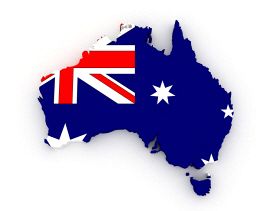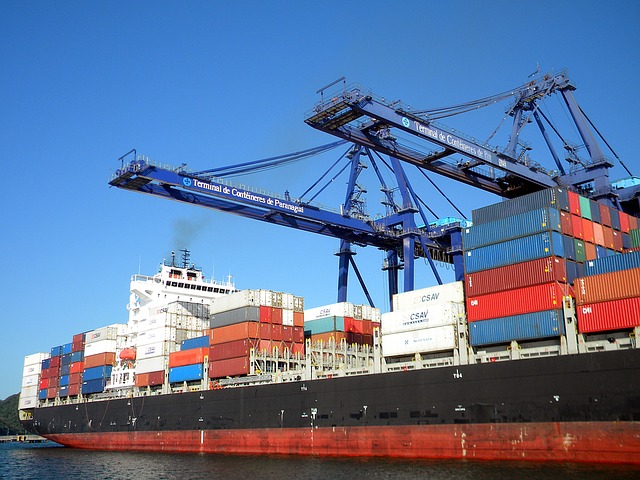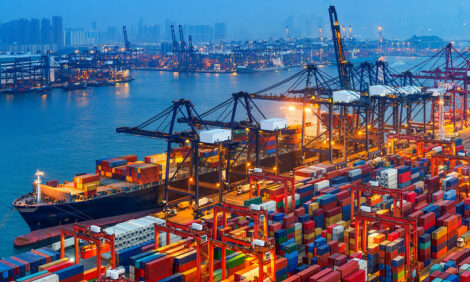



Australia squares up to Chinese economic coercion
Australia is standing up to China – potentially starting a trend of smaller countries responding to the increasingly coercive Asian economic superpower.
In a special report filed by Reuters, journalists outline the deteriorating diplomatic and political relationship between Australia and China.
For years, the Australian political and business establishment had a paramount goal: protect and expand this natural resource powerhouse's booming exports to fast-growing China. Iron ore, coal, natural gas, wine and more: Until COVID-19 struck, Australia had a 29-year run without a single recession as it sent its signature goods to the world's voracious number two economy. Canberra's diplomacy came to focus on balancing the Chinese trade relationship with the nation's equally important defence alliance with the United States.

But the paradigm through which the government of Prime Minister Scott Morrison now views China has shifted dramatically, people inside his government told Reuters. The relationship is no longer shaped just by trade, but by a stark view emerging widely inside this continent-spanning country – that Beijing poses a threat to Australia's democracy and national sovereignty.
Discussions about China inside Morrison's cabinet now revolve around the need to preserve sovereignty and fend off Chinese efforts to sway Australian politics, two government sources told Reuters.
Recent steps taken by the prime minister appear to reflect this thinking. He has warned the Australian public about a significant increase in cyber attacks, introduced a national security test for foreign investments, and announced a dramatic jump in defence spending focused on the Indo-Pacific region. Morrison didn't name China when announcing these moves, but government officials said they came in response to Beijing's actions.
Australia has also voiced concerns in recent weeks about what it sees as Chinese disinformation campaigns that seek to undermine democracies; suspended its extradition treaty with Hong Kong over China's imposition of a draconian security law in the city; and filed a declaration with the United Nations rejecting China's maritime claims in the South China Sea.
Of all the actions taken by Australia in recent months, though, it's the government's lobbying of world leaders in April for an inquiry into the origins of the COVID-19 pandemic that has most enraged Beijing. The world lined up behind the move, with 137 nations co-sponsoring a resolution at the World Health Assembly for an investigation into the pandemic, which first emerged in Wuhan.
Beijing also ultimately backed the resolution. An independent panel, headed by former New Zealand prime minister Helen Clark and former Liberian president Ellen Johnson Sirleaf, will deliver an interim report in November.
Beijing lashed out angrily, imposing trade sanctions on Australia after the pandemic inquiry move. It suspended some beef imports on a technicality and effectively blocked a $439 million trade in barley by slapping tariffs of 80.5 percent on the Australian import. China has also launched an anti-dumping probe into Australian wine imports.
Reuters spoke to 19 current and former Australian government officials and two former prime ministers in examining how relations with China have deteriorated. They provided the first comprehensive account of how the government came to adopt its view that Australia must "speak up," as several ministers have said, about Beijing's actions.
This shift in Australia's position on China began in 2017, the interviews show, before the sharp deterioration in relations between Beijing and Washington, which threatens to trigger a new Cold War. The change has been led in part by a coterie of Australian officials, some with security and intelligence backgrounds, who hold deeply sceptical views of the Chinese leadership and its global ambitions.
In one sign of the times, a bipartisan group of anti-China hawks has formed in the Australian parliament, who dub themselves "the Wolverines."
Asked about this shift, Morrison couched his moves with diplomatic care. In a written response to questions from Reuters, he said his government's approach to China has been consistent.
"As with any bilateral relationship, Australia's approach is based on our values and principles, and on a clear-eyed assessment of Australia's national interest," he wrote. "We place great store on our relationship with China and we have not sought to put that relationship at risk."
Australia had been a great beneficiary of China's economic growth, Morrison said, but "as countries develop they have a responsibility to uphold a stable, prosperous strategic balance in our region."
Trade with China remains vitally important to Australia. The stakes are high: Australia has a $172 billion trading relationship with China, and a $51 billion surplus.
It's an uneasy balancing act. In response to Australia's push for a pandemic inquiry, Beijing accused Canberra of "dancing to the tune" of Washington. In June, after a fresh threat from Beijing on trade, Morrison said Australia wouldn't yield to "coercion."

A visit Morrison paid to Beijing in 2017, when he was Treasurer, set the stage for his stance in the current feud. He came away from the trip convinced his country's trade with the world's second largest economy had two-way benefit. He'd heard from Chinese officials, he told a small group of reporters in Beijing at the time, that Australia's exports of iron ore, which the country produces in vast volumes and high quality, put it in a "unique position."
This conviction, that China needs Australia's iron ore, is now buttressing his government's position.
"It is a mutually beneficial relationship," Morrison said in his comments to Reuters. "China’s economy is stronger because they have access to high quality energy, resources, agricultural goods and increasingly services from Australia. And our economy is stronger because we have access to high quality manufactured goods from China."
So far, China hasn't mentioned iron ore as a potential target for reprisal. For good reason: Australia makes up 60 percent of China's imports of iron ore, crucial for powering an economy Beijing is trying to get back to full capacity after it was shuttered by the virus.
Despite China's "bluster," it needs Australia, says former Prime Minister Malcolm Turnbull, whose relationship with Beijing became increasingly icy during his tenure from 2015 to 2018.
"If China suddenly came across a huge supply of iron ore, at appropriate grades, that they could extract at competitive prices, that was closer to them, they would be all over it - but there's not," he told Reuters. "Chinese companies do not buy Australian commodities, goods or services because they want to do this struggling little island nation a favour - they do it because it's good value, good quality."
Responding to a question about its iron ore imports from Australia, China's foreign ministry said trade between the two nations was long established and based on market principles of supply and demand. China hopes Australia will "do more" that is "conducive to friendly exchanges and cooperation," the ministry said.
It remains to be seen whether Australia's tougher stance provides a broader model for other mid-sized powers reliant on exports to China, however. Australia's iron ore would be hard for China to replace; other nations may lack such leverage.
Read the full report on Reuters.
Source: Reuters


